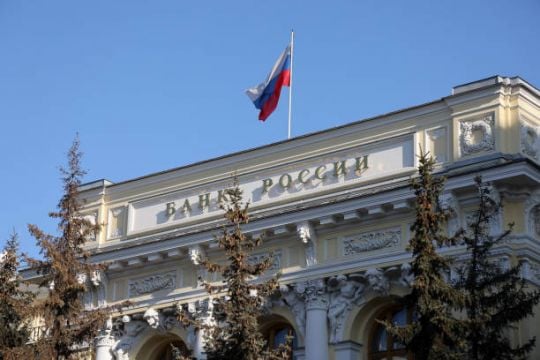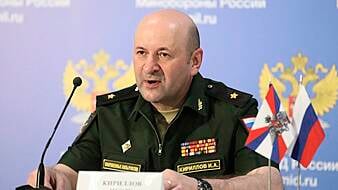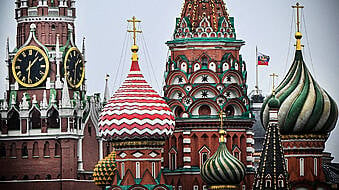The United States on Monday imposed sanctions on Russia's central bank and other key sources of wealth, dealing a crushing blow to the country's economy in further punishment of Moscow over its invasion of Ukraine.
The measures, which blocked Americans from engaging in any transactions involving Russia's central bank, finance ministry and national wealth fund,are likely to push Russian inflation higher, cripple its purchasing power and drive down investments, U.S. officials said on Monday as the new measures took effect.
The move, which included a carve out for energy payments, comes after Washington last week imposed several rounds of sanctions targeting Moscow, including against Russian President Vladimir Putin and major banks, after the country's forces invaded Ukraine in the biggest assault on a European state since World War II.
"Our objective is to make sure that the Russian economy goes backwards if President Putin decides to continue to go forward with an invasion in Ukraine, and we have the tools to continue to do that," a senior U.S. administration official said on Monday.
The measures were announced after the United States and its allies on Saturday said they would take action against the central bank and bar some of the country's banks from the SWIFT international payments system, a list that officials said was still being finalized with EU partners.
The U.S. Treasury Department in a statement on Monday said it had also slapped sanctions on a key Russian sovereign wealth fund, the Russian Direct Investment Fund, its management company and its chief executive, Kirill Dmitriev, whom Washington accused of being a close ally of Putin.
Russia's central bank more than doubled its key policy rate on Monday and introduced some capital controls as the country faced deepening economic isolation, but its governor said sanctions had stopped it selling foreign currency to prop up the rouble.
The U.S. official on Monday said that when Russia was planning its invasion of Ukraine, it was counting on being able to use their central bank's assets to mitigate the impact of sanctions, and since Saturday's announcement had been attempting to bring those assets back to Russia or safe havens.
Monday's measures "immobilized" any assets Russia's central bank held in the United States in a move that will hinder Russia's ability to access hundreds of billions of dollars in assets.
"Putin's war chest of $630 billion of reserves only matters if he can use it to defend his currency, specifically by selling those reserves in exchange for buying the rouble," a second senior administration official said.
"After today's action, that will no longer be possible and 'Fortress Russia' will be exposed as a myth."
Mark Sobel, a former senior Treasury official who serves as the U.S. chairman of the OMFIF forum for central banking, economic policy and public investment, said the action was a "tremendous example of Western unity."
"This all happened overnight, and the force of it basically cut off a significant country from the global financial system overnight. And there's no precedent for that," Sobel said.







